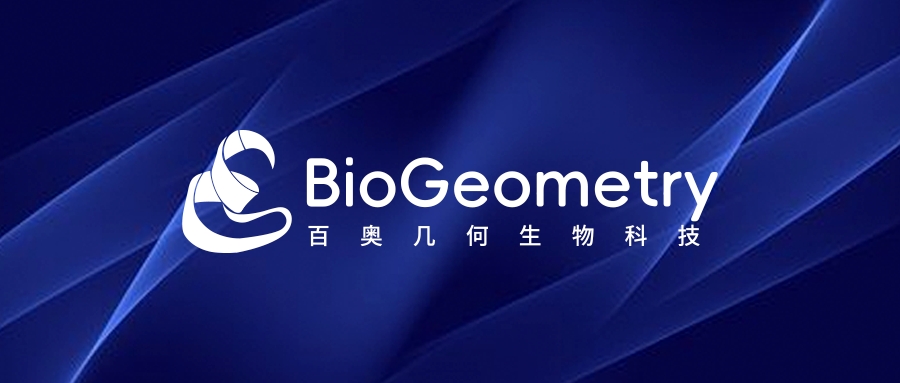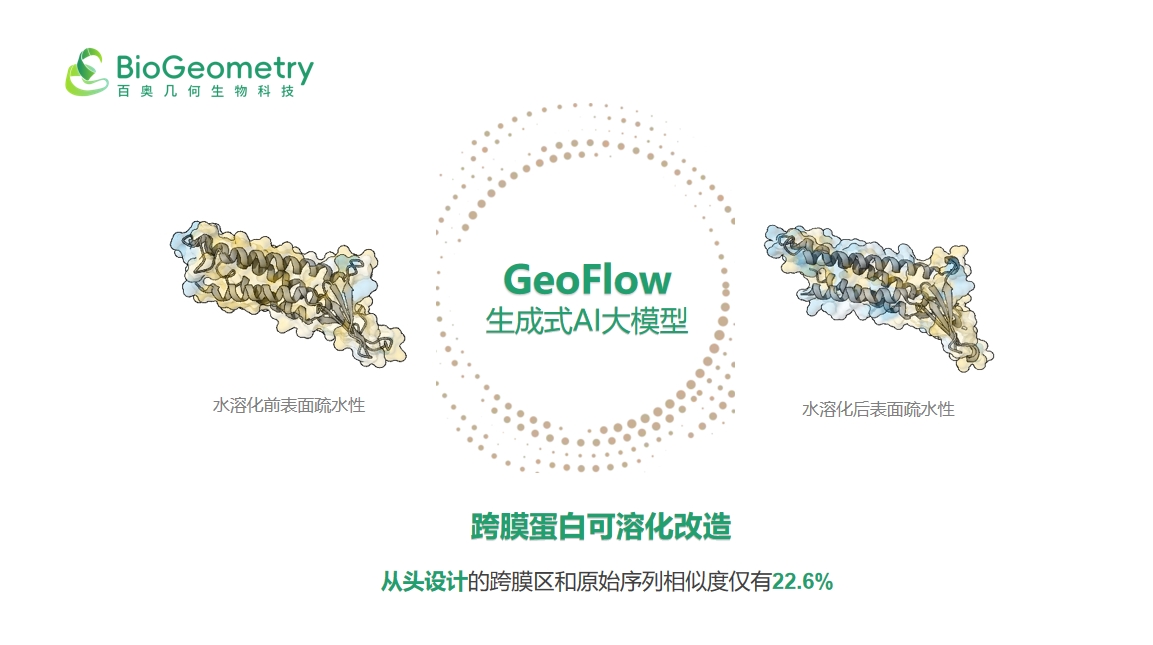Recently, BioGeometry achieved a major breakthrough in protein de novo design by successfully delivering solubilized transmembrane proteins to a leading pharmaceutical company and validating their functionality. This success is based on BioGeometry’s generative AI model, GeoFlow, which redesigns the hydrophobic regions of transmembrane proteins to be soluble in water while retaining their structure and function. This technology resolves the challenge of stabilizing transmembrane proteins in aqueous solutions, paving the way for high-throughput drug screening and future research on transmembrane protein targets.

Background : Challenges in Transmembrane Protein Research
Transmembrane proteins, also known as integral membrane proteins, make up 70-80% of membrane proteins and are embedded in the cell membrane, playing crucial roles in cellular processes. They include types like G protein-coupled receptors (GPCRs), ion channels, and transport proteins, essential for maintaining cellular structure, transport, and signaling.

Many human diseases are linked to malfunctioning membrane proteins, making them key drug targets. Over 60% of known drug targets are transmembrane proteins, and nearly 90% of antibody drug targets are membrane proteins. However, their hydrophobic nature makes them difficult to stabilize in water, posing challenges for drug development.
Traditional methods using detergents are costly and often disrupt protein structure, making them ineffective for antibody screening. This has long been a major challenge in biological research.
De Novo Design of Soluble Transmembrane Proteins: New Pathway for High-Throughput Antibody Screening
BioGeometry’s approach involves fixing the intracellular and extracellular regions of transmembrane proteins and using GeoFlow to redesign the hydrophobic regions to be water-soluble. This results in stable, functional transmembrane proteins with only 22.6% similarity to the original sequence. GeoFlow achieves higher success rates in sequence design under stricter screening conditions compared to existing models.
This platform overcomes the limitations of traditional methods, providing new support for high-throughput antibody screening and drug discovery for transmembrane protein antigens.
“Traditional methods struggle with the unique properties of transmembrane proteins, resulting in low screening efficiency,” said BioGeometry’s antibody project leader. “Generative AI offers new opportunities for antigen modification.”
Using designed soluble membrane proteins, BioGeometry can verify de novo designed antibodies with high throughput and reliability, reducing the time and cost of wet experiments. This allows for more efficient and accurate screening of high-affinity antibodies, improving drug development efficiency and precision.

Strategic Value: Transforming Biopharmaceutical Industry and Creating New Drug Development Paradigms
Transmembrane proteins are crucial in biological processes and are key targets for drug discovery and disease treatment. For example, 34% of FDA-approved drug targets are GPCRs. Despite the rapid development of therapeutic monoclonal antibodies (mAbs), progress in GPCR-targeted mAbs has been slow due to the difficulty in preparing GPCR antigens.
“BioGeometry’s breakthrough in solubilizing transmembrane protein antigens completes a full generative AI-based antibody discovery technology chain,” said Dr. Jian Tang, founder and CEO of BioGeometry. “We can now redesign hydrophobic regions to be hydrophilic and design antibodies targeting the extracellular regions of transmembrane proteins.”
This success marks another advancement in BioGeometry’s use of generative AI for protein design, validating its advantages over traditional methods. Generative AI de novo design can significantly improve macromolecule design success rates and shorten development cycles, offering great potential for the global biopharmaceutical industry.
Looking ahead, BioGeometry will continue to innovate in generative AI technology, focusing on protein design and optimization to provide precise, intelligent, and efficient solutions for the global biopharmaceutical and synthetic biology industries.
